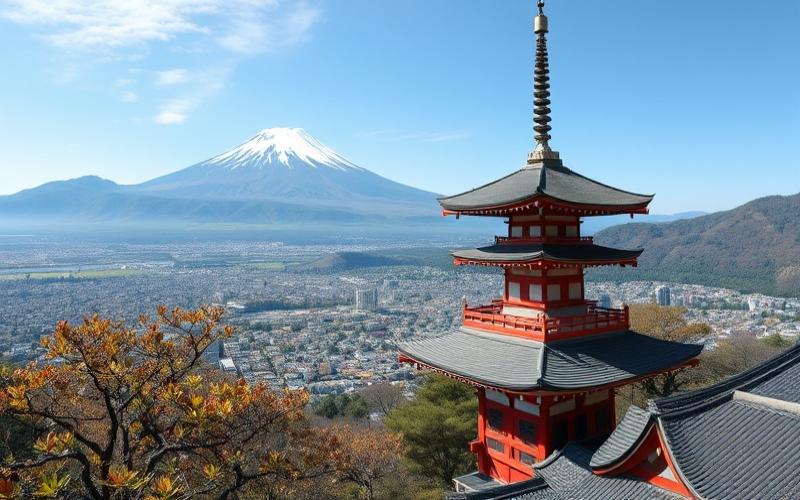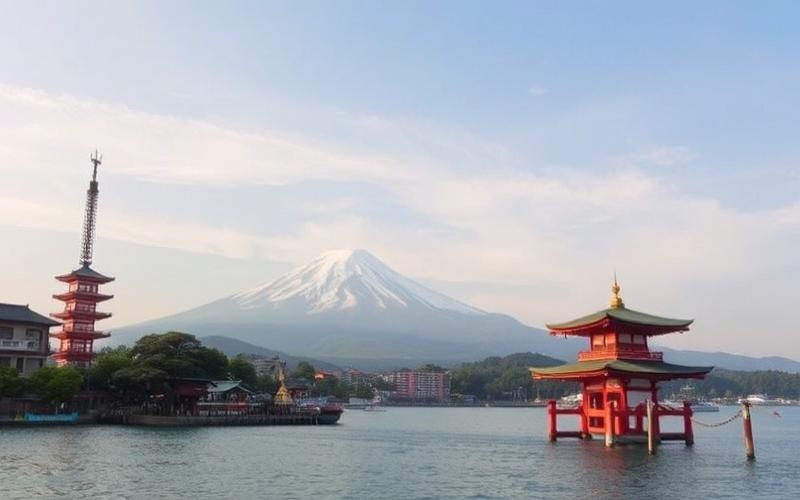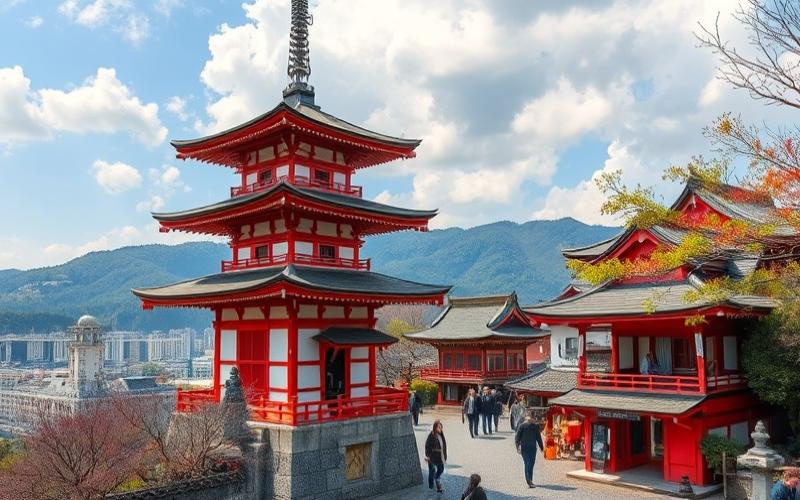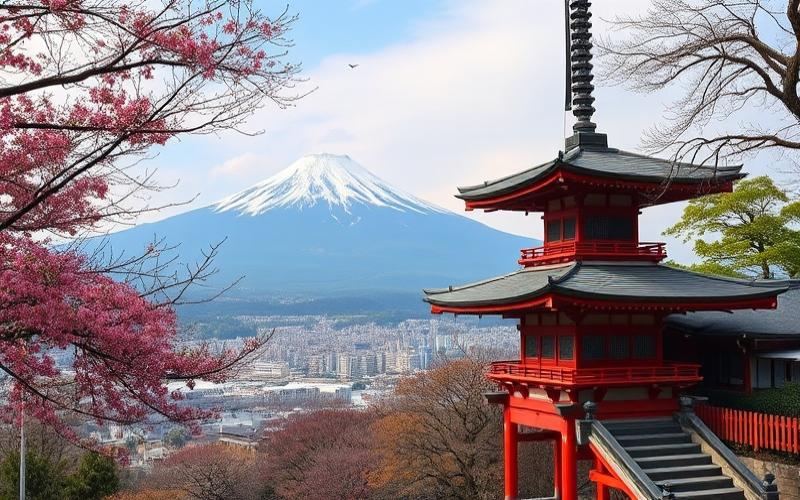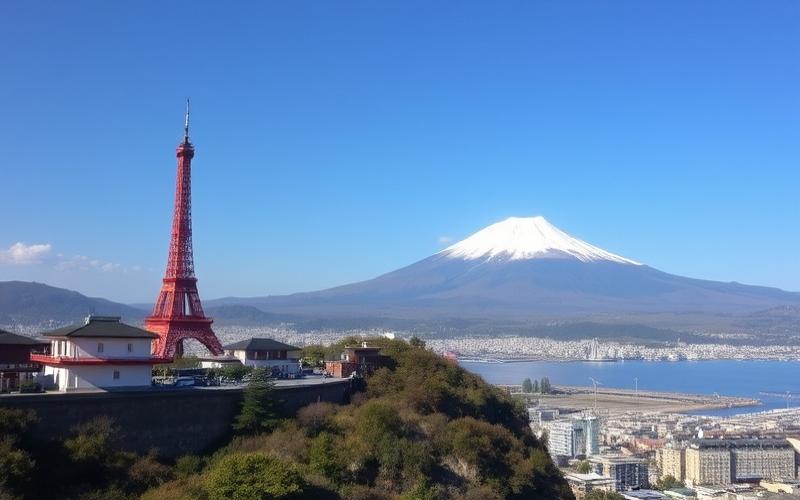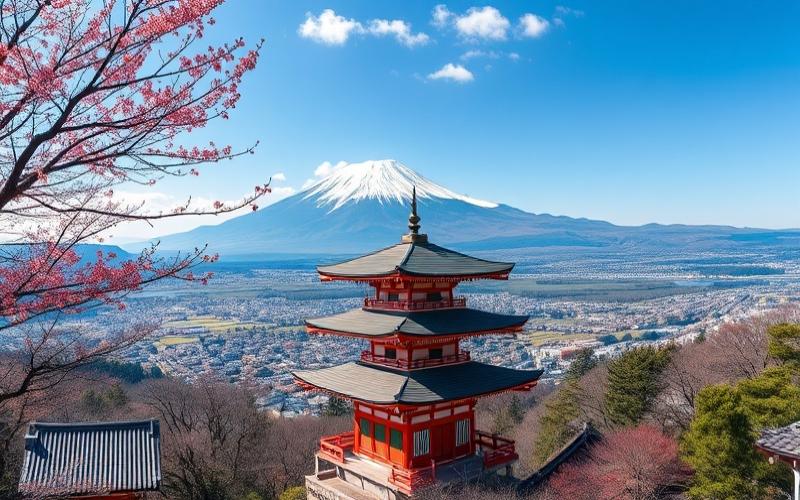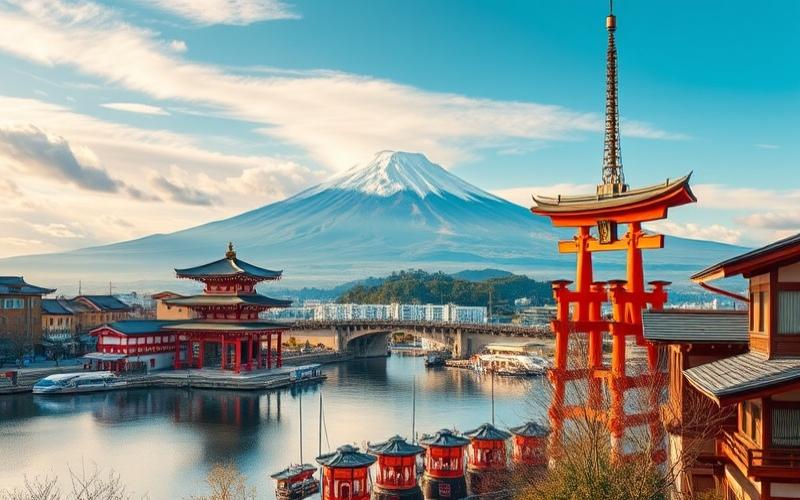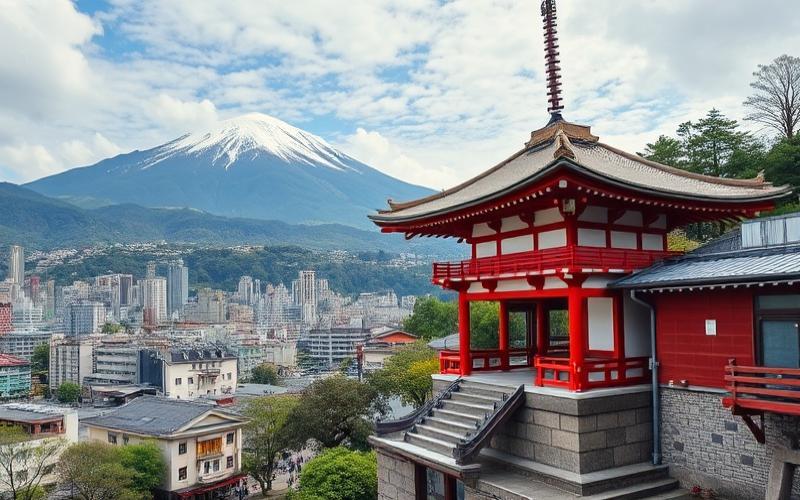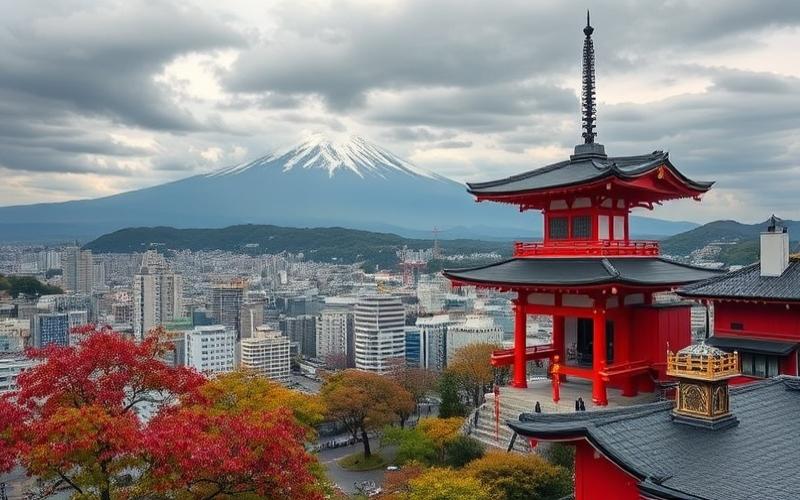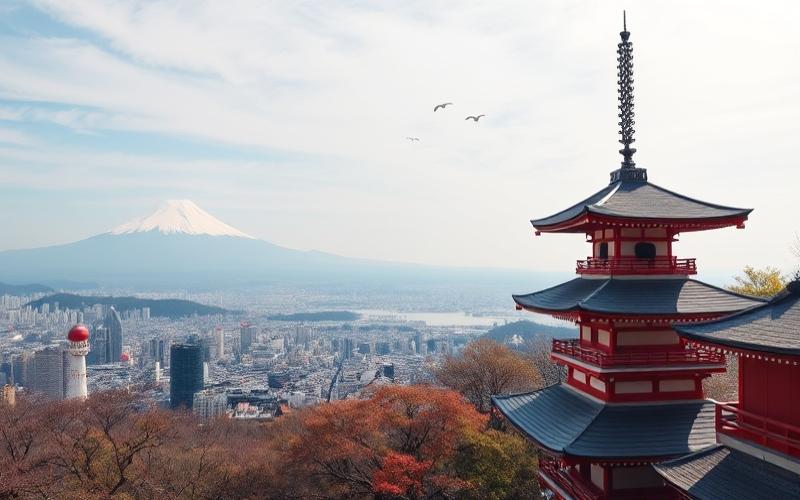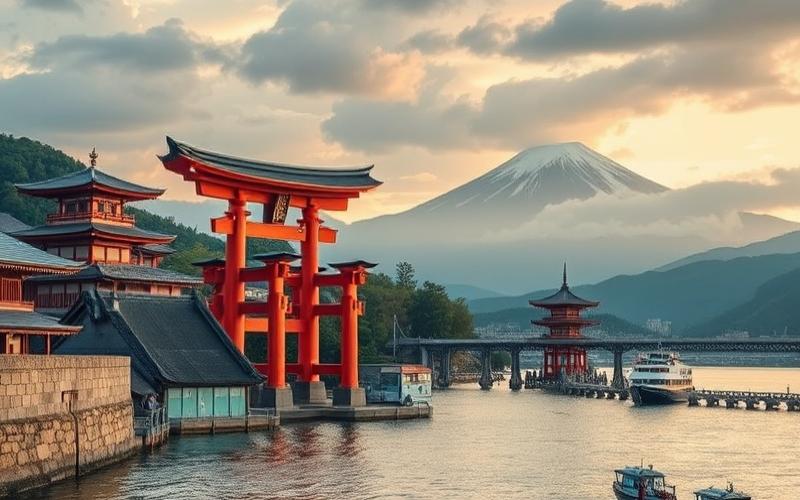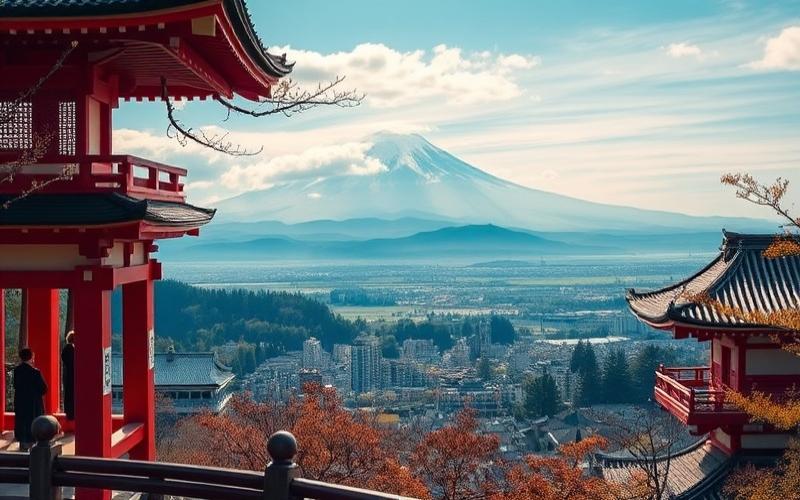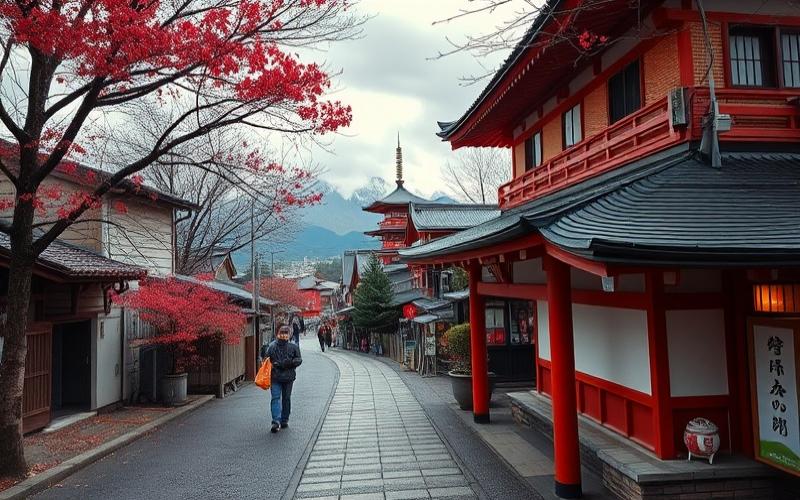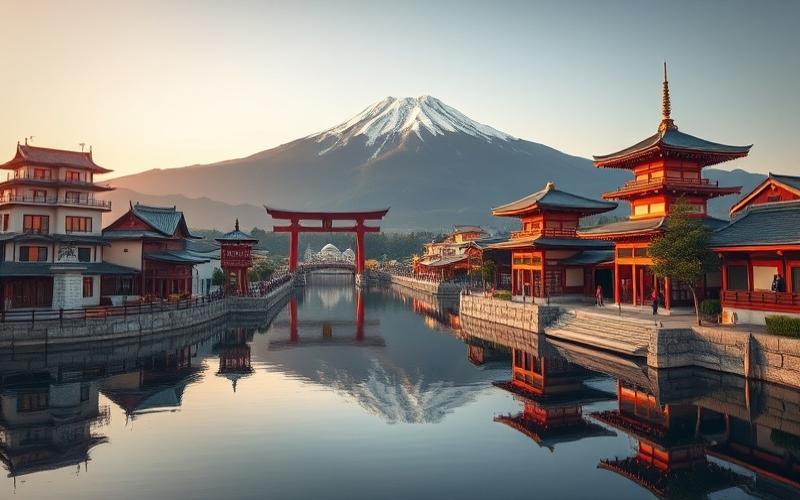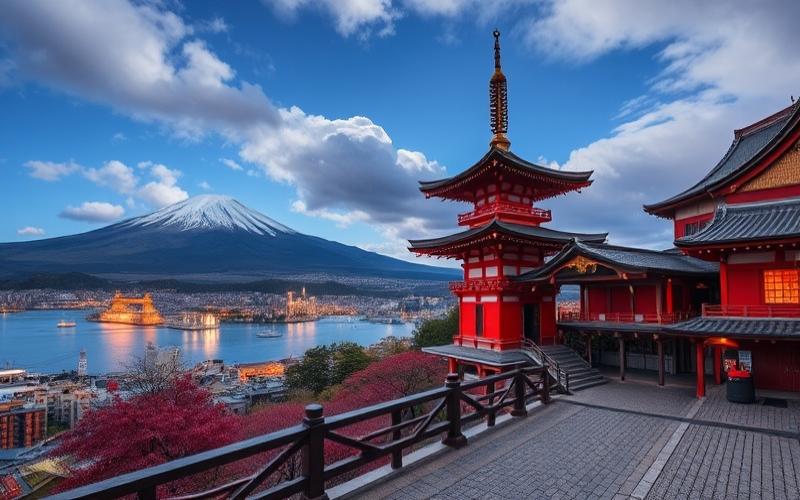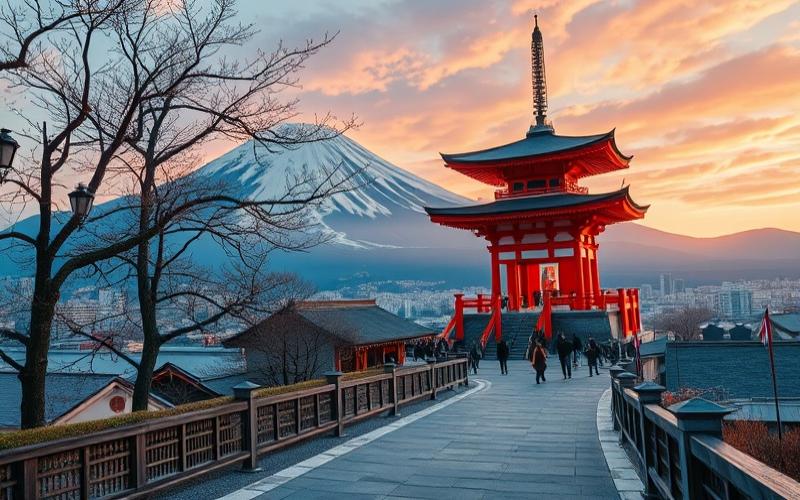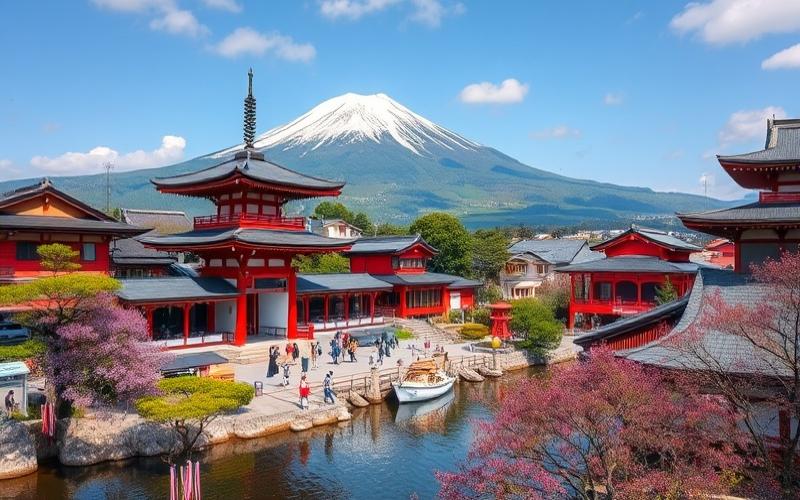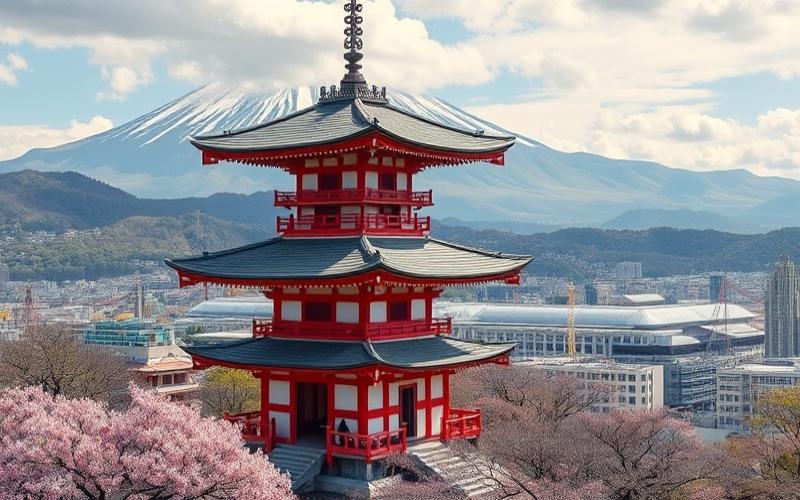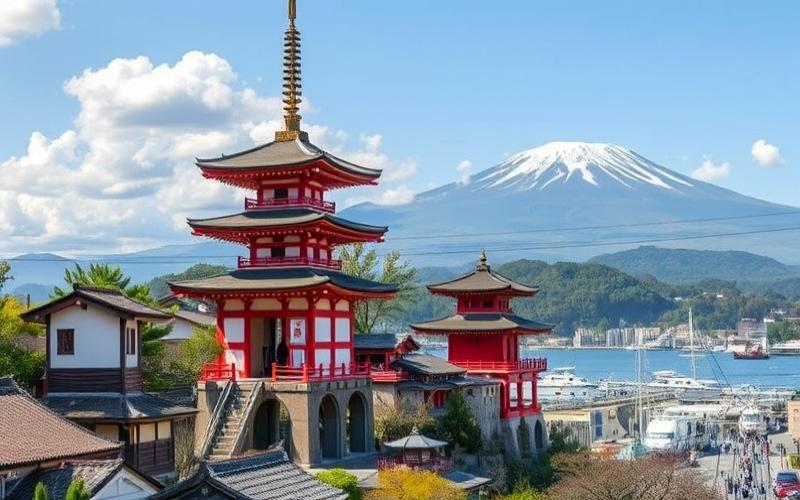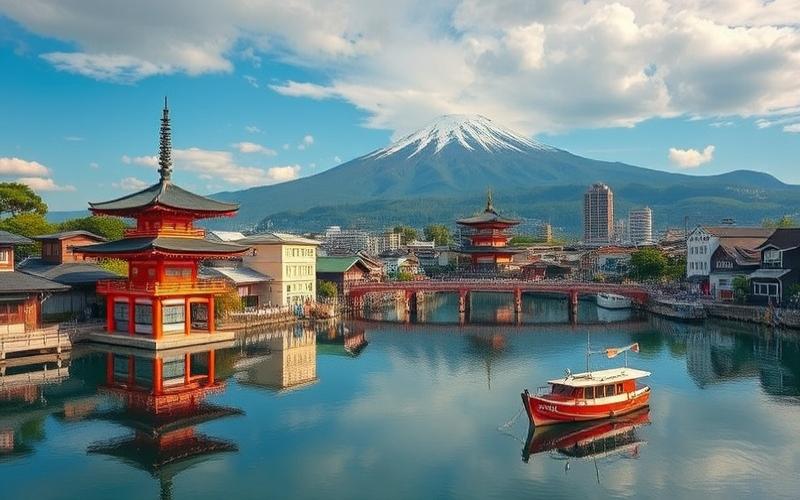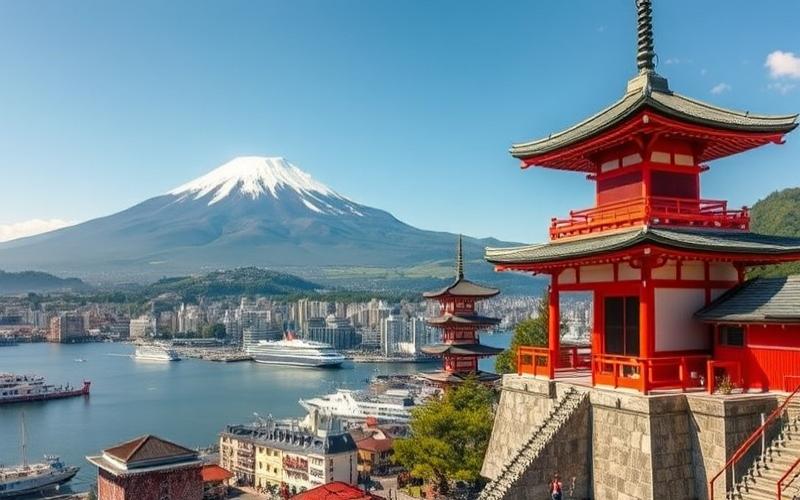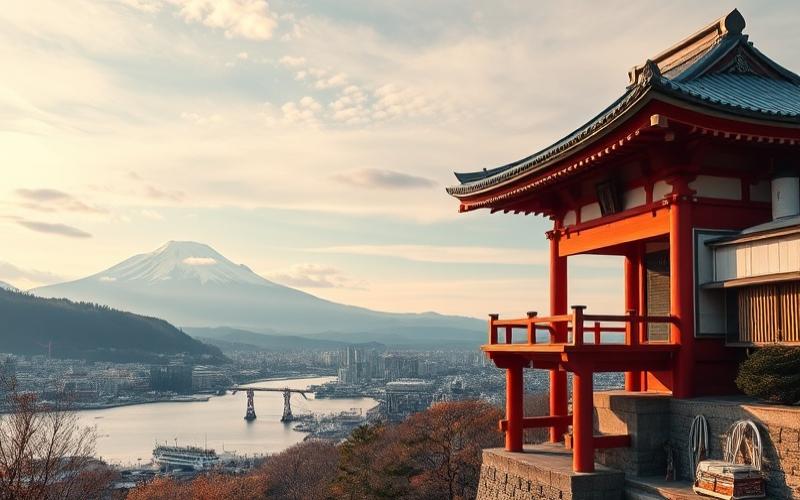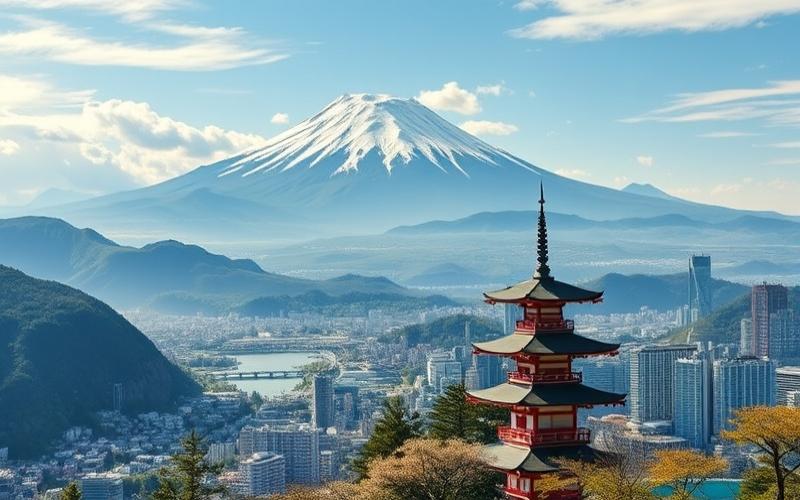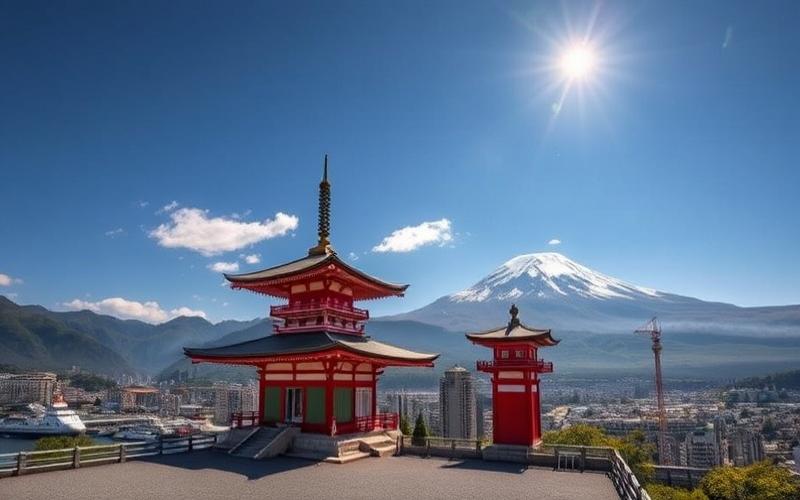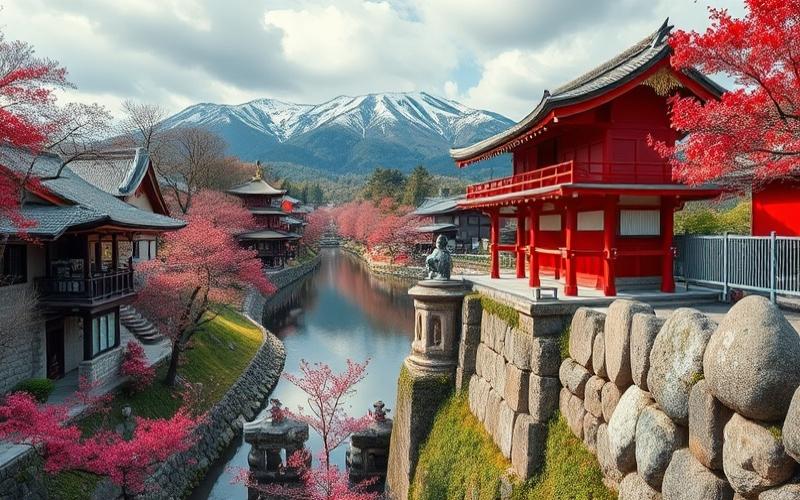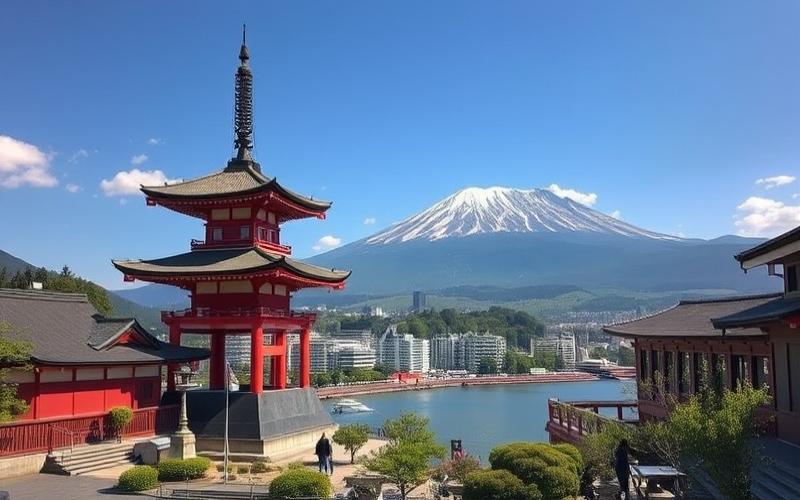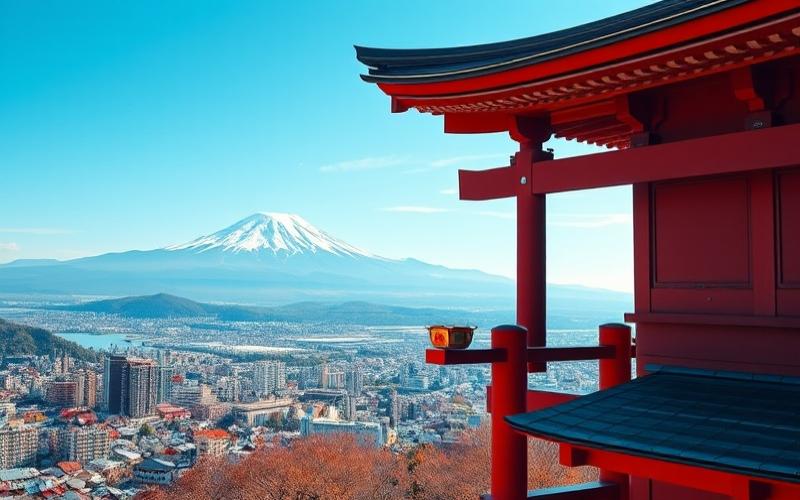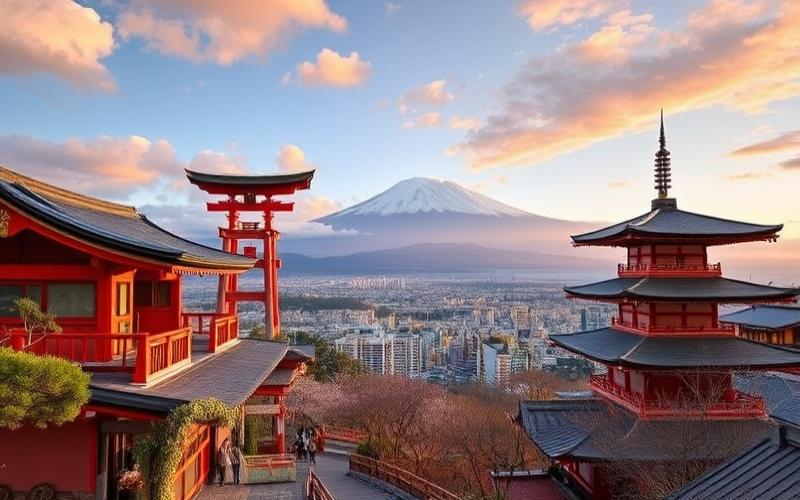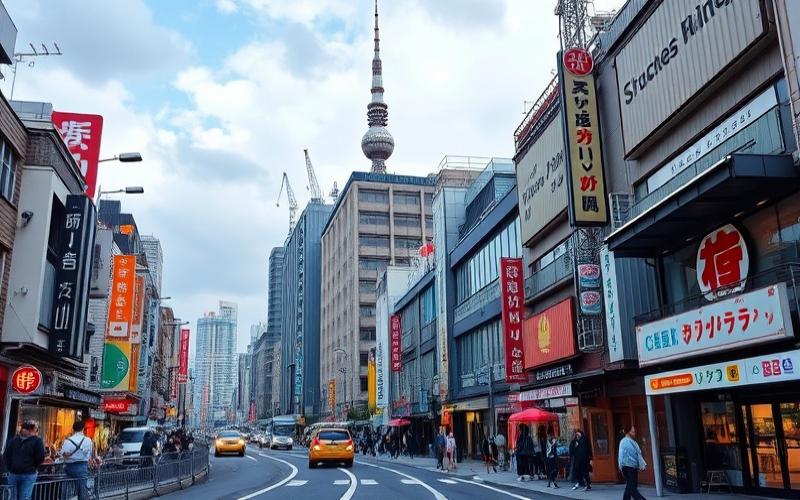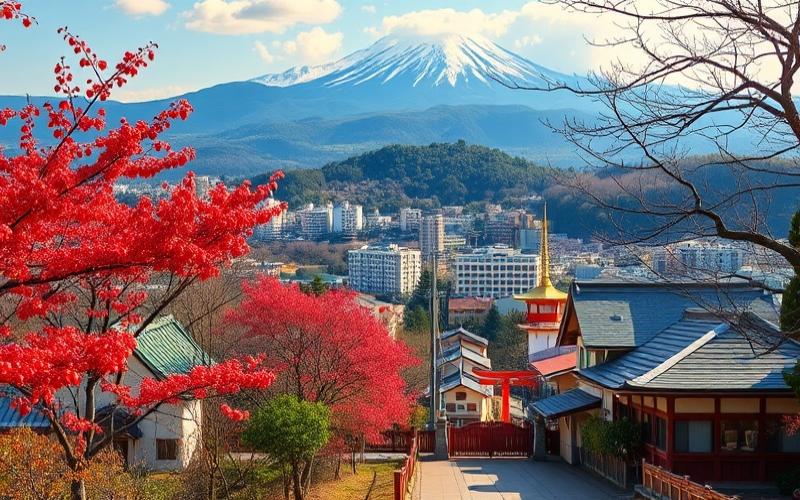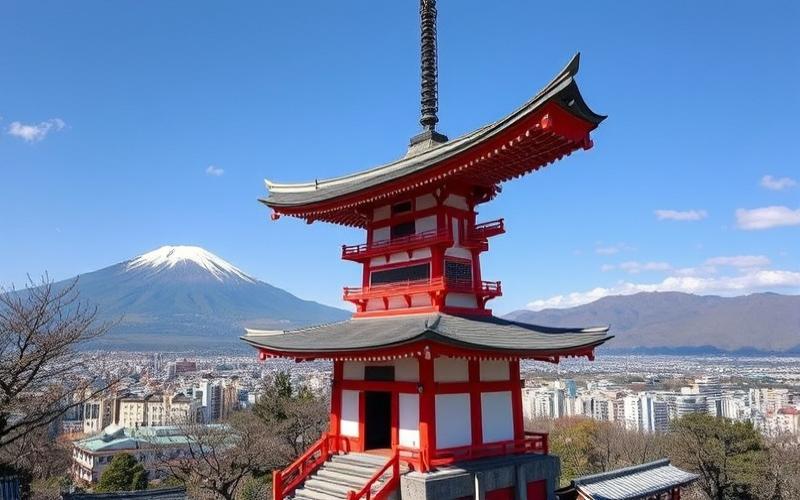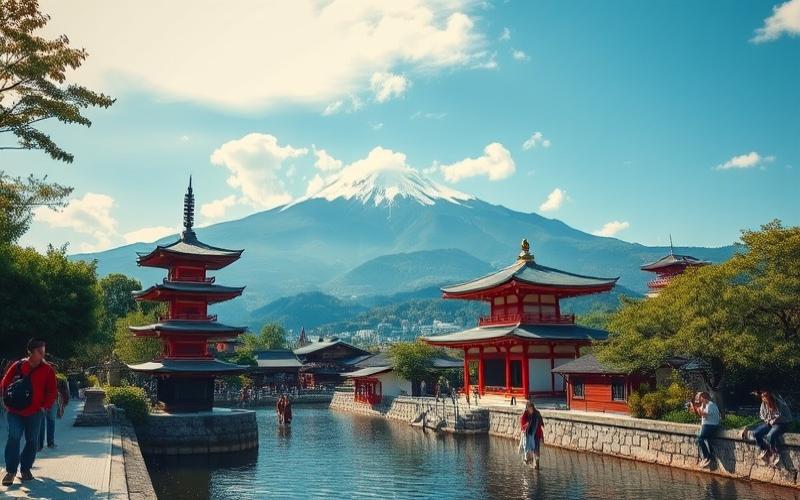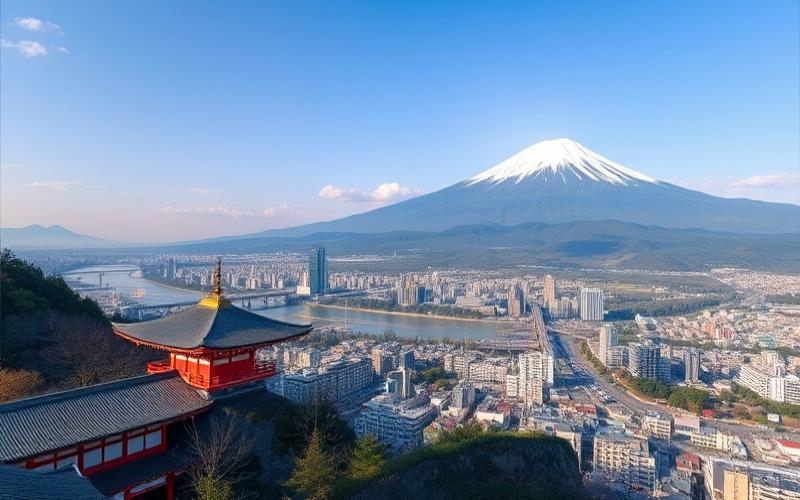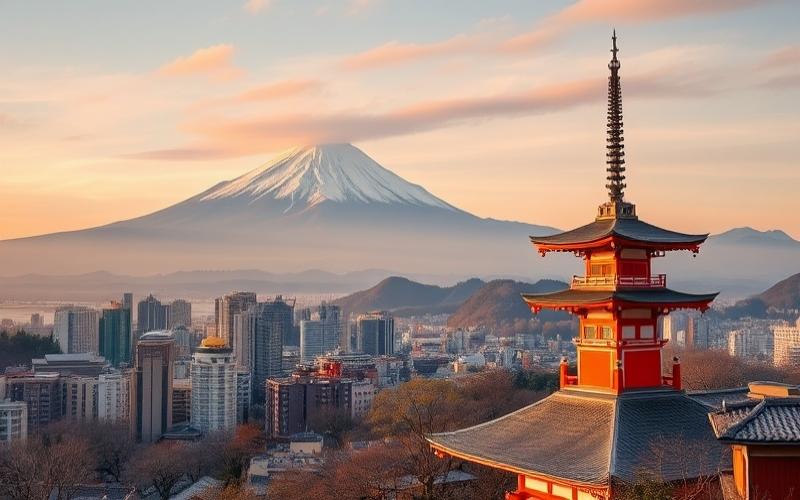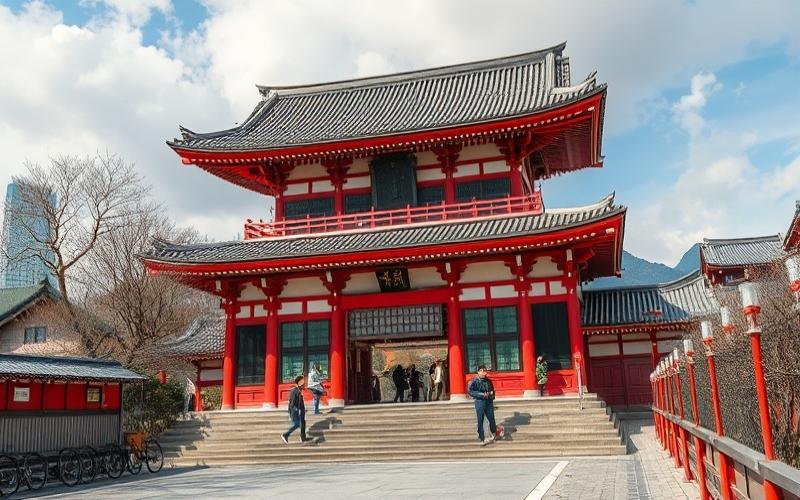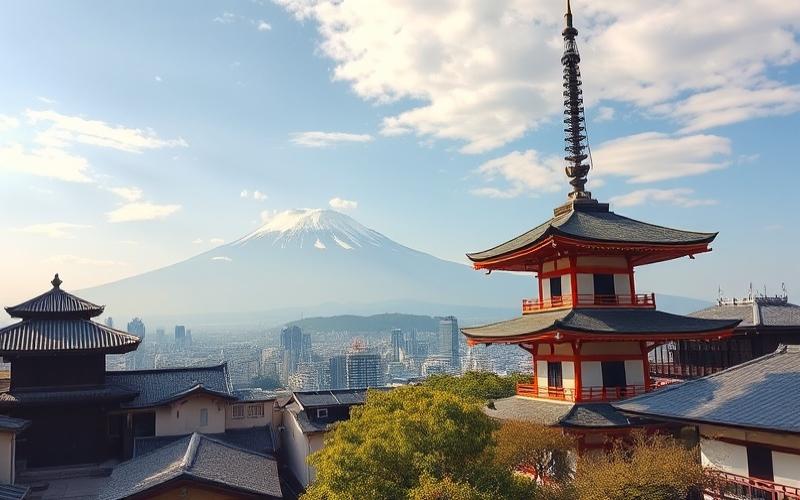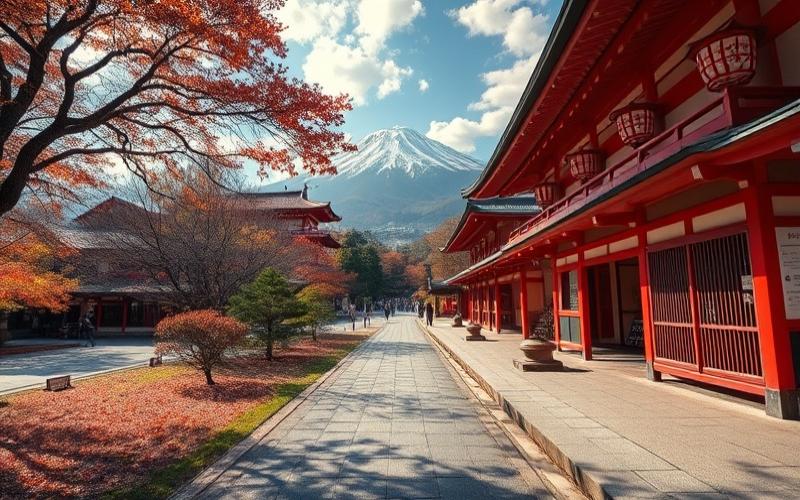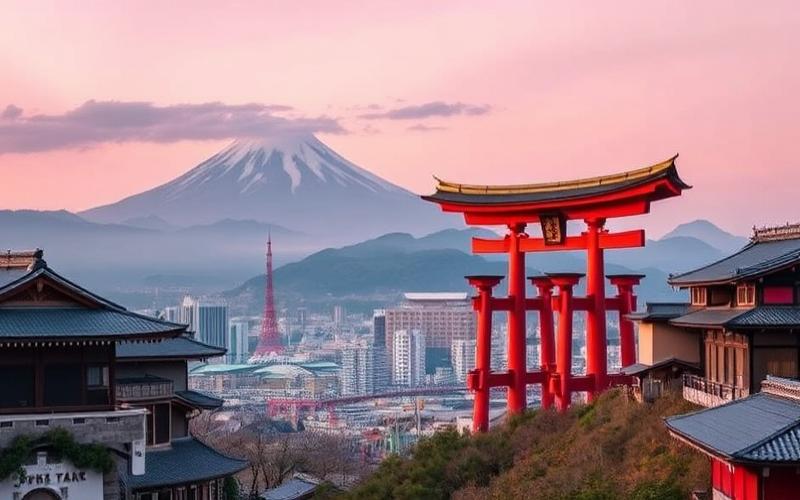
 Published on and written by Cyril Jarnias
Published on and written by Cyril Jarnias
Japan, with its unique culture and dynamic economy, attracts many foreign entrepreneurs. Whether you’re looking to establish a physical presence for your business or expand your operations in the Archipelago, finding the right commercial space, office, or warehouse is a crucial step. This guide will help you navigate the process of searching for and leasing professional space in Japan, providing valuable information about best practices, costs, and available resources.
The Quest for the Perfect Space: Winning Strategies in Japan
Finding the ideal space for your business in Japan requires a methodical and well-informed approach. Here are some effective strategies to assist in your search:
Utilize online resources: Websites specializing in Japanese commercial real estate, such as Tenant Net or At Home, offer a vast selection of properties for rent. These platforms allow you to filter results according to your specific criteria, like location, size, and budget.
Engage a local real estate agent: Japanese real estate agents possess in-depth knowledge of the local market and can help you navigate cultural and legal subtleties. Agencies like Ken Corporation or Mitsui Fudosan Realty are renowned for their expertise in commercial real estate.
Networking and recommendations: Word-of-mouth remains a powerful tool in Japan. Attend networking events for foreign entrepreneurs and don’t hesitate to ask for recommendations from other business owners.
Explore developing areas: Booming neighborhoods like Shibuya Stream in Tokyo or Umekita in Osaka often offer interesting opportunities for new businesses, with modern spaces and sometimes financial incentives.
Good to know:
In Japan, leasing commercial space often involves paying a “reikin” (gratuity fee) in addition to the security deposit. Plan for this additional cost in your budget.
Key Players in Japanese Commercial Real Estate
To facilitate your search for space in Japan, it’s essential to know the main agencies specializing in commercial real estate. Here is a selection of reputable agencies:
CBRE Japan: A global leader in commercial real estate, CBRE offers a complete range of services, from property search to asset management. Their expertise in the Japanese market is particularly appreciated by foreign companies.
JLL Japan: With a strong presence in major Japanese cities, JLL offers customized solutions for businesses of all sizes, from shared offices to logistics warehouses.
Cushman & Wakefield: This international agency has a team dedicated to the Japanese market, offering consulting and leasing services for various types of commercial properties.
Savills Japan: Specializing in high-end real estate, Savills is particularly recommended for companies seeking prestigious spaces in the business districts of Tokyo or Osaka.
These agencies not only provide access to a wide range of properties but also offer valuable consulting services to navigate the specifics of the Japanese real estate market. They can help you understand market trends, negotiate lease terms, and manage the administrative aspects of leasing.
Good to know:
Many real estate agencies in Japan work in networks. If an agency doesn’t have the property you’re looking for, they can often refer you to a partner who has it in their portfolio.
Paperwork and Formalities: Essential Documents
Leasing commercial space in Japan generally involves more paperwork than in many other countries. Here are the essential documents you’ll need to prepare:
Business registration: A copy of your business registration certificate in Japan (tokibo tohon) is essential. If your business isn’t yet registered, you may need to lease through a service company or a local representative.
Business plan: Many landlords request a detailed business plan to assess your company’s financial stability. This document should be translated into Japanese.
Financial guarantees: You’ll need to provide proof of your financial capacity, such as bank statements or audited financial reports.
Personal identification: A copy of your passport and residence card (for foreigners residing in Japan) will be required.
Corporate guarantee: In many cases, a Japanese corporate guarantee is necessary. Companies like Global Trust Networks offer this service to foreign businesses.
Lease agreement: The lease agreement (chintaishaku keiyakusho) is typically written in Japanese. It’s highly recommended to have it translated and reviewed by a lawyer before signing.
It’s important to note that Japanese landlords may be reluctant to lease to foreign companies without a history in Japan. In such cases, using a corporate guarantee service or collaborating with a specialized real estate agency can greatly facilitate the process.
Good to know:
In Japan, the company seal (hanko) is often used instead of signatures. Make sure you have registered your company’s official seal before starting the leasing process.
Leasing Costs: Budgeting Your Professional Space in Japan
Leasing commercial space in Japan can represent a significant investment. Costs vary considerably depending on location, size, and property type. Here’s an overview of the main elements to consider in your budget:
Monthly rent: In prime business areas of Tokyo like Marunouchi or Ginza, rents can reach 25,000 to 30,000 yen per square meter per month for Class A offices. In less central areas or secondary cities, prices can drop to 8,000 – 15,000 yen per square meter.
Security deposit (shikikin): Generally equivalent to 6-12 months of rent, refundable at the end of the lease minus deductions for damages or unpaid amounts.
Gratuity fee (reikin): A practice unique to Japan, these non-refundable fees often equal 1-2 months of rent.
Agency fees: Usually one month’s rent plus tax, paid to the real estate agent.
Renewal fees (koushinryo): Every 2-3 years, equivalent to 1-2 months of rent.
Common charges: For maintenance of common areas, security, etc. Budget approximately 20-30% of the monthly rent.
Insurance: Tenant insurance is generally mandatory, costing about 20,000 – 50,000 yen per year depending on the size of the space.
To illustrate, let’s take the example of a 100 m² office in a Tokyo business district:
- Monthly rent: 2,000,000 yen
- Security deposit: 12,000,000 yen
- Reikin: 4,000,000 yen
- Agency fees: 2,200,000 yen
- Monthly charges: 400,000 yen
In this example, the initial investment would be approximately 18,200,000 yen, with recurring monthly costs of 2,400,000 yen.
Good to know:
In some developing areas or secondary cities, financial incentives may be offered to foreign businesses, such as rent reductions or subsidies for space setup. Inquire with local economic development agencies.
Emerging Cities: Lower-Cost Opportunities
Although Tokyo remains the business hub of Japan, other cities offer interesting opportunities for businesses looking to establish themselves at a lower cost. Here are some destinations to consider:
Fukuoka: Located on Kyushu Island, Fukuoka has become a hub for startups thanks to its “Startup Visa” and business-friendly policies. Rents there are about 60% cheaper than in Tokyo, with modern office spaces available in the Hakata district.
Osaka: Japan’s second-largest metropolis, Osaka offers an excellent balance between world-class infrastructure and reduced costs. The Umeda business district offers commercial spaces at rates 30-40% lower than Tokyo.
Yokohama: Just 30 minutes from Tokyo, Yokohama offers attractive commercial rents and a high quality of life. The Minato Mirai 21 district is particularly popular with international companies.
Kobe: Known for its international port, Kobe attracts businesses in the biomedical and IT sectors. The city offers tax incentives and competitive rents, about 50% cheaper than Tokyo.
Sapporo: The capital of Hokkaido, Sapporo positions itself as a center for creative and technology industries. Real estate costs there are among the lowest of major Japanese cities, offering an excellent opportunity for businesses in the startup phase.
These cities offer not only reduced costs but also unique advantages such as better quality of life, well-established expatriate communities, and local policies favorable to foreign businesses.
Good to know:
Some of these cities have established “National Strategic Special Zones” offering relaxed regulations and tax incentives to attract foreign investment. Research these programs during your space search.
Official Support: Leasing Assistance for Foreign Businesses
Japan, eager to attract foreign investment, has implemented various initiatives to facilitate the establishment of international companies. Here are some of the main available supports:
- The “Ibuki” program which provides free temporary offices for 50 business days in Tokyo or other major cities.
- Free consulting services for commercial space searches.
- Subsidies for leasing costs in certain priority sectors.
- Fukuoka offers rent reductions of up to 50% for foreign startups in certain designated areas.
- Osaka provides grants of up to 5 million yen for setting up offices or R&D centers.
- Yokohama offers subsidies for office leasing and setup costs for foreign businesses in targeted sectors.
- Simplified procedures for obtaining business visas.
- Corporate tax reductions.
- Subsidies for leasing and setting up commercial spaces.
Sector-specific programs: Certain sectors, like green technologies or AI, benefit from specific support programs including leasing assistance.
To benefit from these supports, it’s generally necessary to submit a detailed business plan and demonstrate how your business will contribute to the local economy. It’s recommended to contact JETRO or the economic development offices of targeted cities for detailed information on available programs.
Good to know:
Eligibility criteria and support amounts can change quickly. Make sure to check the most recent information with official organizations and consider hiring a local consultant to maximize your chances of obtaining these supports.
Conclusion: Your Springboard to Success in Japan
Finding the ideal space for your business in Japan may seem like a significant challenge, but with the right resources and a strategic approach, it’s a crucial step toward success in this dynamic market. Whether you choose a prestigious office in Tokyo, an innovative space in Fukuoka, or a logistics warehouse in Osaka, Japan offers a diversity of options to meet your business needs.
Remember to leverage the resources offered by organizations like JETRO and specialized real estate agencies. Their expertise can save you valuable time and help you avoid common pitfalls. Additionally, explore opportunities offered by emerging cities and special economic zones, which can offer excellent value and unique advantages for your business.
Finally, keep in mind that patience and flexibility are essential in this process. The Japanese real estate market has its particularities, but with good preparation and the right partners, you can find the perfect space to thrive in one of the world’s most fascinating and innovative markets.
Disclaimer: The information provided on this website is for informational purposes only and does not constitute financial, legal, or professional advice. We encourage you to consult qualified experts before making any investment, real estate, or expatriation decisions. Although we strive to maintain up-to-date and accurate information, we do not guarantee the completeness, accuracy, or timeliness of the proposed content. As investment and expatriation involve risks, we disclaim any liability for potential losses or damages arising from the use of this site. Your use of this site confirms your acceptance of these terms and your understanding of the associated risks.

